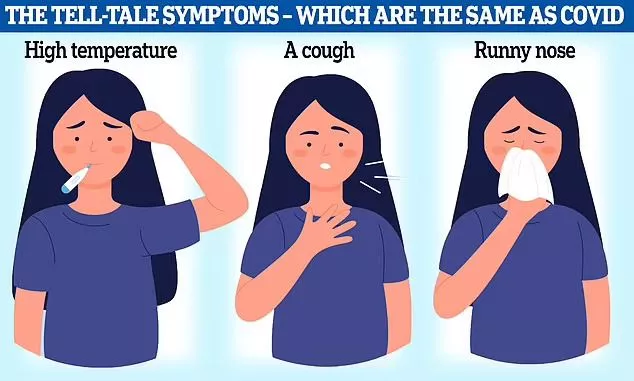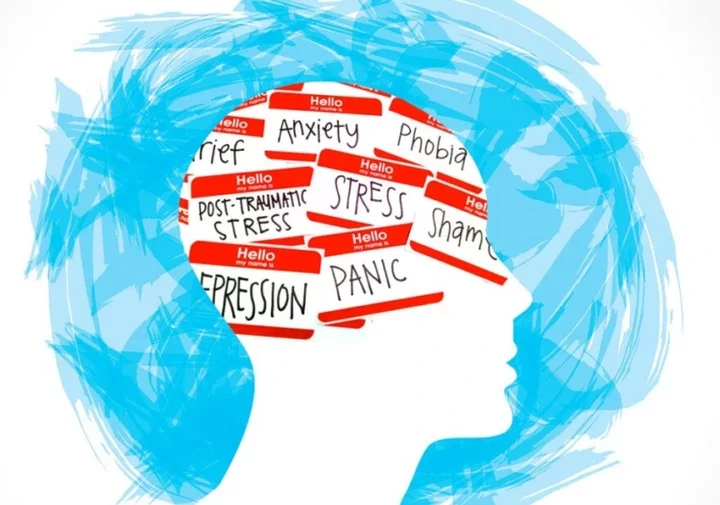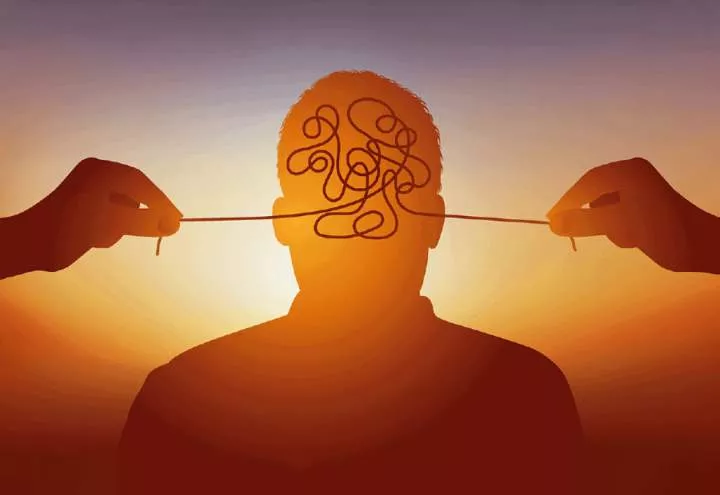
Mental illness, also known as mental health disorders, covers many conditions. These conditions affect how a person feels, thinks, and acts. Some well-known mental illnesses are depression, anxiety, schizophrenia, eating disorders, and addiction. These can change how people view the world and themselves.
The signs and symptoms of mental disorders vary. They depend on the type of disorder and personal situations. However, there are common signs people may notice:
Feeling sad or down
Confused thinking
Excessive fears or worries
Extreme mood changes
Withdrawal from activities
Tiredness or low energy
Detachment from reality
Difficulty coping with daily problems
Problems with alcohol or drug use
Major changes in eating habits
Suicidal thoughts
If you see these signs in yourself or someone you know, seek professional help. Mental illness can have serious effects on daily life and health.
Key Takeaways:
Signs of mental illness can include various feelings and behaviours. These range from sadness and confusion to suicidal thoughts.
Mental illnesses impact mood, thinking, and behaviour. They have wide-reaching effects on daily life.
If you note these symptoms in yourself or a loved one, reaching out for professional support is crucial.
When to Seek Help for Mental Illness
If you're feeling emotionally unwell or know someone who is, quick action is vital. Don't delay in getting help from a healthcare expert. Mental illnesses need as much care as any other health issue. Reaching out early can make a big difference in improving life.
Knowing when to seek help is the first and crucial step. Signs of mental illness can be different. But they might include:
Changes in mood, like constant sadness or being easily upset
Pulling away from friends or family
Problems with focus or making choices
Changing in eating habits or weight
Trouble sleeping or sleeping too much
Physical issues without a clear cause, like headaches
Losing interest in things you once loved
Thinking about hurting yourself or suicide
If you see these signs in you or someone close, take it seriously. Getting professional help is crucial for treating complex mental health issues.
Getting Help for Mental Illness
There are many ways to get help:
Contact a healthcare provider: Talk to your doctor first. They can look into your symptoms and suggest a specialist if needed.
Talk to a friend or family member: Opening up to someone can give you the support you need. They might also help you find professional help.
Call a helpline or crisis hotline: In an emergency or if you're thinking about hurting yourself, call immediately. These services are always ready to help.
See a mental health professional: A therapist or psychiatrist can create a plan just for you. They offer a full check-up and support.
Asking for help is a strong move, not a sign of weakness. The sooner you reach out, the sooner you can get the best care. Support and professional advice can help you manage your mental health better.
Causes and Risk Factors of Mental Illness
Mental illness has complex causes. It often mixes genetic and environmental factors. For some, a family history of mental illness makes the chances higher. This shows genes can affect mental health.
At the same time, what you go through in life matters, too. Stress, trauma, and even substance misuse can be impactful.
When the chemicals in your brain are out of balance, it can lead to conditions like depression.
Genetic Factors
Family history can increase your risk of mental illness. But just because it runs in the family doesn't mean you'll face it too. Your genes are just a piece of the puzzle.
Environmental Factors
The world around us affects mental health a lot. Hard times like money problems and breakups can hit us hard. So can abuse or other traumas. These tough situations can lead to mental health problems.
Using drugs or drinking can harm the brain. It makes it easier for mental illness to take hold.
Risk Factors for Mental Illness
Some things may make mental illness more likely:
Having it in your family
Going through hard times
Dealing with long-term health problems
Brain injury from a big accident
Past traumas
Using drugs or drinking too much
Being mistreated or neglected
Not having strong relationships
Having had mental health struggles before
It's key to know mental health issues are common and can affect anyone. Around 1 in 5 adults deal with them yearly. And they're not just for older people; they can hit at any age.
Conclusion
Mental illness affects millions worldwide. Its symptoms vary but often show as mood, thought, or behaviour changes. Knowing these signs is key to getting help.
Remember, seeking help shows strength, not weakness. Treatment like medicine and therapy can help a lot. This improves mental health and how we feel overall.
Raising awareness about mental illness is vital. It helps create a kinder, more supportive world. We must push for better care accessibility and urge people to seek help. Together, we can truly change the lives of those with mental health issues.
FAQ
What are the symptoms of mental illness?
The signs of mental illness can change depending on the disorder and someone's life. Common clues are feeling very sad, having tangled thoughts, and worrying too much. Other signs include big changes in mood, pulling away from friends, and always feeling tired.
People might also not handle day-to-day problems well. They could start drinking too much, eating a lot more or less, or thinking about ending their life.
When should I seek help for mental illness?
Getting help early is key if you or someone you know shows signs of mental illness. Mental health problems don't often get better by themselves. They might even get more serious over time.
If you're having thoughts about suicide, reach out for urgent help. You can call emergency services or a hotline right away.
What are the causes and risk factors of mental illness?
The reasons behind mental illness are like a puzzle of genes and life experiences. A family history of mental illness could mean you're more likely to face it too. Life events, like very stressful times or trauma, and misuse of substances also make a difference.
There's also a chemical side to mental illness. Problems with brain signals can lead to conditions like depression. Many things can raise the chance of having a mental illness. These include a past of such issues, tough life events, brain injuries, bad life experiences, misusing substances, being mistreated, lacking strong relationships, or facing mental illness before.













![Tottenham vs Man Utd: An unusual relegation six-pointer [A preview] Tottenham vs Man Utd: An unusual relegation six-pointer [A preview]](https://static.netnaija.com/i/qXNEQdb6NlE.webp)




Comments